Dwindling sales, declining market share and profitability have led to reported vehicle plant closures, job losses, and delayed investments. However, our automotive manufacturing expert survey reveals a cautiously optimistic industry outlook.
The annual AMS/ABB Automotive Manufacturing Outlook Survey 2024, now in its third year, has once again provided an insight into the challenges, pain points and new opportunities that are emerging within the automotive manufacturing space. Whilst many of the findings confirm well known themes that are widely discussed, to see them quantified and evolve over time within this tracker survey really crystallises those findings, and provides the invaluable insight, depth and nuance that only an expert audience survey such as this can provide.
In today’s rapidly evolving automotive manufacturing landscape, maintaining a competitive edge is crucial for navigating challenges and seizing growth opportunities, making the insights gleaned from our recent survey paramount.
About the survey
In October 2024, AMS partnered with robotics and automation experts ABB Robotics to conduct a four-week survey strategically designed to capture automotive manufacturers’ perspectives. With over 430 responses collected, of which more than 50% were from OEMs and tier suppliers, this survey provides a comprehensive overview of the current state of play in automotive manufacturing, the challenges facing the industry and future opportunities. Additionally, the survey measures the overall market sentiment around vehicle production and sales volumes.
Key takeaways
Growing labour costs & skills shortages have emerged as the leading manufacturing challenge
Labour costs and skills shortages have overtaken the previously dominant issue of supply chain disruption and parts shortages of the Covid era. Nonetheless, despite this apparent easing of supply chain disruption and parts shortages, the issue still remains strongly in second place as a major concern. Reinforcing this point, labour costs have also overtaken raw materials and energy as the main cost concern for manufacturing companies.
However, when it comes to manufacturing complexity, supply chain disruption and parts shortages remains the leading complexity challenge, demonstrating that the Covid era supply chain disruption is continuing to afflict the automotive manufacturing sector, some five years after the pandemic began.
When it came to smart factories, maximising productivity was identified as the main benefit of investing in smart factories. However, high initial costs, unsurprisingly, were identified as the leading challenge in implementing smart factories.
Trade disputes threaten investment, sourcing, and access to key materials
The latest tariff pronouncements by new US president Trump, have triggered a trade war, and after 30-40 years of successful globalisation, this heralds what is likely to be a much more protectionist economic climate and therefore a more regionalised automotive industry. However, global automotive supply chains are highly integrated and complex and suddenly introducing trade barriers will clearly cause considerable disruption, upending decades of relatively free trade. When we asked the industry about the potential effects of trade disputes, more than half of respondents indicated that key materials, investment strategy, and sourcing strategy would be impacted severely or impacted quite a lot.
Cost-cutting is the key effect of uncertainty
Cost-cutting was the key effect of uncertainty, followed by difficulty in planning, cancelled/delayed plant investments, and cancelled/delayed new model launches. This absolutely confirms our reporting of the automotive sector being in a cost-cutting phase in response to falling sales, declining market share, tariffs/ trade wars, and plummeting profitability with a spate of plant closures, job losses, and delayed / cancelled investments.
However, in terms of overall market outlook, despite industry concerns, overall production and sales volume forecasts are more positive than in our previous 2023 survey. Nonetheless, the automotive industry has clearly shifted from a production-constrained market (as was experienced throughout the pandemic period) and has now reverted back to the relatively normality of a demand constrained market.
For further details download the full survey report for exclusive insights into:
- Manufacturing challenges and complexity
- Cost challenges
- Benefits and challenges of smart factories
- Supply chain challenges
- Labour and skills challenges and specific skills shortages
- Electrification and alternative fuels
- EV production targets, barriers to 100% EV production, and consumer constraints
- Commercial vehicle powertrain outlook
- Feasibility and challenges of sustainable manufacturing
- Production and sales volumes, and volume constraints
- Trade disputes
- Robotics and automation
- Automotive manufacturing software
Download the survey report below
This survey was compiled in partnership with ABB

ABB is a leading global technology company that energizes the transformation of society and industry to achieve a more productive, sustainable future. By connecting software to its electrification, robotics, automation and motion portfolio, ABB pushes the boundaries of technology to drive performance to new levels. With a history of excellence stretching back more than 130 years, ABB’s success is driven by about 105,000 talented employees in over 100 countries.
Please complete the form below to download the survey report




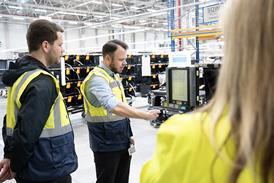














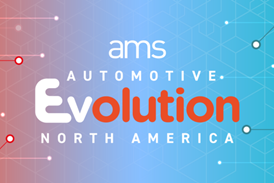










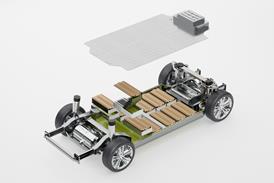
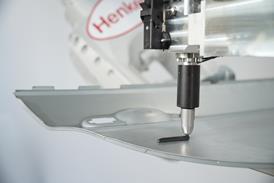

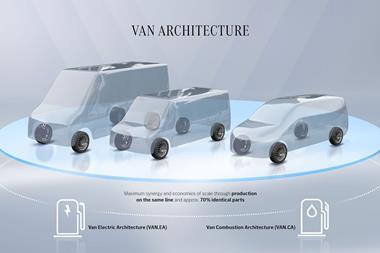
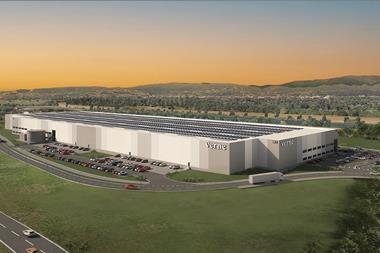
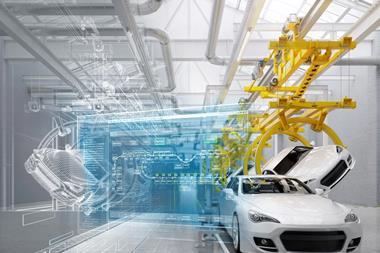


No comments yet